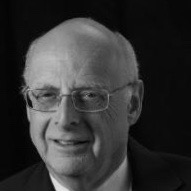Originally posted on Nov 9, 2011
Jewish political behavior in 2011 appears to be mimicking the general social environment. If tax policy is the standard of measure for candidates in the forthcoming election among many voters, then the case for Israel represents the Jewish litmus test.
With the issuance on October 19th of the “National Pledge for Unity on Israel” by the ADL and the AJC, we would be introduced to an immediate and deafening round of criticism leveled at these agencies, especially on the part of the Jewish political right. When reading the comments of those who opposed the statement, the language and intensity of the commentaries reflected the tenor of the national debate, at times, similar to the tone set by political leaders seeking to demonize their opponents and the other political camp over an array of actions or issues.
Commenting on this statement Abe Foxman noted: “We want the discourse on U.S. support for Israel to avoid the sometimes polarizing debates and political attacks that have emerged in recent weeks, as candidates have challenged their opponents’ pro-Israel bone fides or questioned the current administration’s foreign policy approach vis-à-vis Israel.”
Yet the negative comments would focus on what the opponents of this Unity Pledge perceived as an attempt to stifle debate. Interestingly, the statement does not call for an end to discussion of Israel rather it suggests “Now is the time to reaffirm that Israel’s well-being is best served, as it has always been, by American voices raised together in unshakeable support for our friend and ally.” Written in the affirmative, it maintains the shared unity around the Jewish State on the part of politicians and leaders.
Yet, the Unity Pledge was seen, for example, by the Emergency Committee for Israel, as an “attempt to silence those of us who have ‘questioned the current administration’s foreign policy approach vis-à-vis Israel’ will re-energize us”. Other groups took a more suspicious outlook related to the intent of this statement: “These organizations (ADL/AJC) have a vested interest in ensuring that the Jews continue to vote Democratic and re-elect this president. They fear losing access to the White House.” Within the Jewish radical right, there are elements who view progressive Jewish groups and their leaders to be disloyal to the core interests and well-being of Israel and the Jewish people, suggesting that the statement was yet another example of the appeasement mentality of liberal Jews.
Morton Klein of the ZOA described the intention of the two national leaders, Abe Foxman and David Harris to serve as “thought police” whose “self appointed task is to suppress of criticism of politicians hostile to Israel”.
Groups on the political left, including J Street, have so far declined to support this initiative. Jeremy Ben-Ami suggests: “You can have a unified support for Israel—for the state of Israel, for the concept of Israel, for its future and for its security—but a vehement disagreement about how you get there.”
The case of the Unity Pledge confirms the depth of the political divide among American Jews. As we noted in the 2008 presidential campaign, the harsh rhetoric that became increasingly evident within the Jewish community will be significantly more in play during this forthcoming election cycle. In some measure the Foxman-Harris initiative was designed to offset that type of discourse.
The anger and suspicion triggered in some of the comments offered over the past few weeks since the Unity Pledge was introduced suggests that the intensity and tone of the political conversation within the Jewish community over the course of the next year will be particularly acrimonious, emulating the tenor of the general campaign and our wider society.
The strength of a well-organized political minority is its capacity to speak with clarity and a shared commitment to specific political goals, just as we embrace differing political candidates and parties. Increasingly, one finds the depth of the divide within the Jewish world to be reminiscent of earlier periods in our history. An expression of solidarity and connection seems absent, and in its place discord and distrust have captured the Jewish political stage. As a community who has struggled over centuries to secure our political voice and to affirm our place and message among the peoples of the world, at this moment in time we have the unique opportunity to shape ideas.
Steven Windmueller, Ph.D.
Rabbi Alfred Gottschalk Emeritus Professor
HUC-JIR
Los Angeles campus
See
Did you enjoy this article?
You'll love our roundtable.
Editor's Picks



What Ever Happened to the LA Times?

Who Are the Jews On Joe Biden’s Cabinet?


No Labels: The Group Fighting for the Political Center
Latest Articles

The Threat of Islamophobia

A Passover Call to Action for College and University Presidents

A Public Message to the COO of Columbia

Jewish Students Are Paying the Price of Columbia’s Failures












 More news and opinions than at a Shabbat dinner, right in your inbox.
More news and opinions than at a Shabbat dinner, right in your inbox.